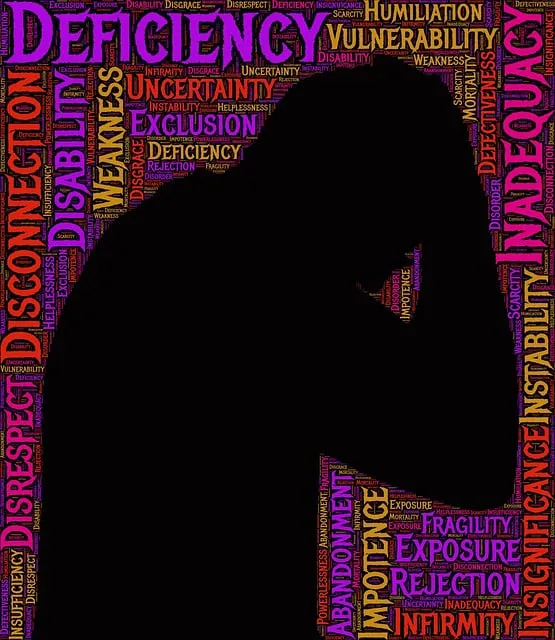Anxiety, a common yet complex issue, can be effectively managed by recognizing symptoms like persistent worry, fear, restlessness, and insomnia, as well as understanding personal triggers. The Kaiser Permanente Mental Health Access Center in Lone Tree offers guidance on these aspects and recommends evidence-based practices such as mindfulness meditation, stress reduction techniques, CBT, and lifestyle adjustments including exercise, sleep, and diet. Their holistic approach combines mental and physical well-being, supported by training for healthcare providers and building supportive networks, to empower individuals in managing anxiety and improving their mental wellness.
At the Kaiser Permanente Mental Health Access Center in Lone Tree, we understand that anxiety is a common yet manageable condition. This article explores effective techniques to help you take control of your well-being. We’ll delve into recognizing anxiety symptoms and triggers, discussing the power of Cognitive Behavioral Therapy (CBT) as a proven approach. Additionally, discover lifestyle adjustments and supportive practices tailored to overcome anxiety. Equip yourself with these tools for a calmer, more balanced life.
- Understanding Anxiety: Recognizing Symptoms and Triggers
- Cognitive Behavioral Therapy (CBT): A Proven Approach to Managing Anxiety
- Lifestyle Adjustments and Supportive Practices for Overcoming Anxiety
Understanding Anxiety: Recognizing Symptoms and Triggers

Anxiety is a common yet complex mental health concern that can manifest in various ways. Recognizing its symptoms and triggers is the first step towards effective management. The Mental Health Access Center at Kaiser Permanente Lone Tree offers valuable insights into this process. Symptoms may include persistent feelings of worry, fear, or restlessness, as well as physical manifestations like rapid heartbeat, insomnia, and difficulty concentrating. Understanding these signs can help individuals identify when anxiety is escalating.
Triggers for anxiety can be diverse, ranging from stressful life events to specific environments or even certain thoughts. By identifying personal triggers, individuals can develop tailored strategies. The center promotes mindfulness meditation and stress reduction methods as evidence-based practices that have proven effective in managing anxiety symptoms. These techniques empower individuals to cultivate a sense of calm and better navigate their emotional responses.
Cognitive Behavioral Therapy (CBT): A Proven Approach to Managing Anxiety

Cognitive Behavioral Therapy (CBT) is a well-established and proven approach to managing anxiety, offered by many healthcare providers, including the Kaiser Permanente Mental Health Access Center in Lone Tree. CBT focuses on identifying and changing negative thought patterns that contribute to feelings of anxiety and stress. By challenging these thoughts and replacing them with more realistic and positive ones, individuals can learn to manage their anxiety effectively.
This therapy involves a collaborative process between therapist and client, where communication strategies are key. The Mental Wellness Podcast Series Production often highlights the importance of open dialogue in CBT. Through regular sessions, clients develop coping skills that enable them to face anxious situations with newfound confidence. By mastering these techniques, individuals can improve their mental wellness and lead happier, more fulfilling lives.
Lifestyle Adjustments and Supportive Practices for Overcoming Anxiety

Anxiety management requires a multifaceted approach, and making lifestyle adjustments is a significant step in overcoming this challenge. At the Kaiser Permanente Mental Health Access Center Lone Tree, we emphasize holistic care, focusing on both mental and physical well-being. Simple yet powerful changes like regular exercise, adequate sleep, and a balanced diet can significantly reduce anxiety levels and build resilience. Incorporating stress-reduction techniques such as mindfulness meditation, deep breathing exercises, or yoga into daily routines can also help individuals manage anxiety symptoms effectively.
In addition to these practices, supportive networks play a crucial role in risk management planning for mental health professionals and fostering healthcare provider cultural competency training. Sharing experiences with trusted friends, family, or support groups provides a sense of belonging and understanding. This social connection is vital for maintaining mental health and can offer unique perspectives on managing anxiety. Embracing these lifestyle adjustments and supportive practices equips individuals with valuable tools to navigate their anxiety journey towards improved mental well-being.
Managing anxiety effectively is a journey that combines understanding, therapy, and lifestyle changes. By recognizing symptoms and triggers, individuals can take proactive steps towards alleviating their anxiety with the aid of evidence-based methods like Cognitive Behavioral Therapy (CBT). The Kaiser Permanente Mental Health Access Center in Lone Tree offers valuable resources for those seeking support, emphasizing holistic approaches to well-being. Embracing lifestyle adjustments and adopting supportive practices can empower individuals to overcome anxiety and lead more fulfilling lives.






